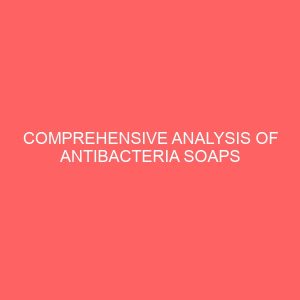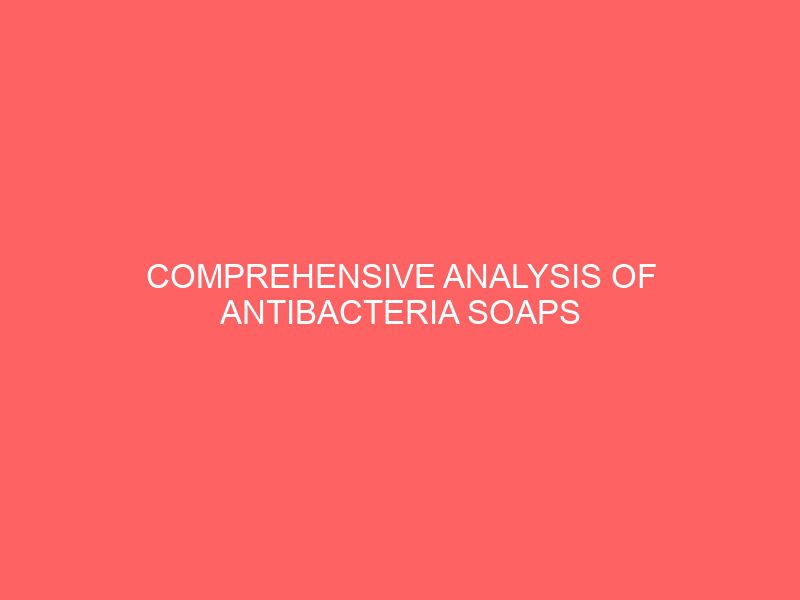Description
CHAPTER ONE
INTRODUCTION
In the first known comprehensive analysis, antibacterial soaps work in terms of killing/inhibiting microorganisms than plain soaps because of the way the main active ingredient triclosan in many bacterial soaps reacts in the cells Furuya, 2006. The soaps containing triclosan used in the community setting are more effective than plain soap at preventing infections, illness symptoms, as well as reducing bacteria Harbarth, 2005.
Antibacterial soaps that contain triclosan is used in higher concentrations in hospitals and other clinical settings, they are also more effective at reducing bacteria and other microorganisms Lowy, 2006.
MECHANISM OF ACTION
At inuse concentrations, triclosan acts as a biocide, with multiple cytoplasmic and membrane targets. At lower concentrations, however, triclosan appears bacteriostatic and is seen to target bacteria mainly by inhibiting fatty acid synthesis.
Some bacterial species can develop lowlevel resistance to triclosan at its lower bacteriostatic concentrations Snow, 1999. These antibacterial soaps; triclosan and glycerin can also be used in inhibiting bacterial infections such as staphylococcus aureus, Escherichia coli, candida albicans Rubin J.R., 1999.
GYCERIN
Glycerin the world famous antiseptic product, was one of the first soaps available, that would actually kill bacteria was developed in the 19th century by Edward cook company of London. Glycerin became known for not only its antibacterial symptoms of prickly heat and other irritating skin problems but also refreshing your body and keeping you healthy zhu, 2010. This soap is used in washing, sterilizing and removing the body odour, it is also used in cleaning the skin and mucous membrane zhu, 2010.








Reviews
There are no reviews yet.